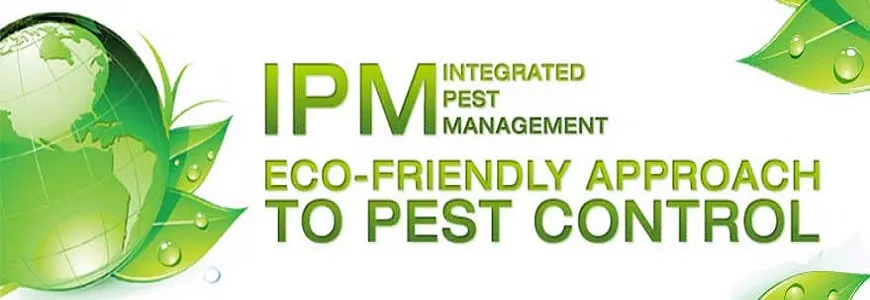
Integrated Pest Management, or IPM, is a process you can use to solve pest problems while minimizing risks to people and the environment. IPM can be used to manage all kinds of pest’s anywhere–in urban and wild land or natural areas.
We provide one of the best Integrated Pest Management IPM. Hire us for recognized and experienced pest control services in Karachi, Lahore and Islamabad.
IPM is an ecosystem-based strategy that focuses on long-term prevention of pests or their damage through a combination of techniques such as biological control, habitat manipulation, modification of cultural practices, and use of resistant varieties.
Pesticides are used only after monitoring indicates they are needed according to established guidelines, and treatments are made with the goal of removing only the target organism. Pest control materials are selected and applied in a manner that minimizes risks to human health, beneficial and non-target organisms, and the environment.
HOW IPM WORKS?
With IPM, you take actions to keep pests from becoming a problem, such as by growing a healthy crop that can withstand pest attacks, using disease-resistant plants, or caulking cracks to keep insects or rodents from entering a building. Rather than simply eliminating the pests you see right now, using IPM means you’ll look at environmental factors that affect the pest and its ability to thrive. Armed with this information,you can create conditions that are unfavorable for the pest.
STEPS IN SUCCESSFUL IPM
These IPM principles and practices are combined to create IPM programs. While each situation is different, six major components are common to all IPM programs:
- Inspection. The corner stone of an effective IPM program.
- Pest identification.
- Monitoring and assessing pest and the damage they have caused.
- Guidelines for when management action is needed.
- Preventing pest problems.
- Treatment selection: Using a combination of biological, cultural, physical/mechanical and chemical management tools
- After action is taken, assessing the effect of pest management.
HOW WE CONTROL PEST
The most effective, long-term way to manage pests is by using a combination of methods that work better together than separately. Approaches for managing pests are often grouped in thefollowing categories.
Biological Control
Biological control is the use of natural enemies—predators, parasites, pathogens, and competitors—to control pests and their damage.
Mechanical and Physical Controls
Mechanical and physical controls kill a pest directly, block pests out, or make the environment unsuitable for it. Traps for rodents are examples of mechanical control. Physical controls include mulches for weed management, steam sterilization of the soil for disease management, or barriers such as screens to keep birds or insects out.
Chemical Control
Chemical control is the use of pesticides. In IPM, pesticides are used only when needed and in combination with other approaches for more effective, long-term control. Pesticides are selected and applied in a way that minimizes their possible harm to people, non-target organisms, and the environment. With IPM you’ll use the most selective pesticide that will do the job and be the safest for other organisms and for air, soil, and water quality; use pesticides in bait stations rather than sprays; or spot-spray a few weeds instead of an entire area.
IPM Certification
IPM certification is acceptable worldwide by all international bodies. IPM Certification implies that a professional, product or service meets a well-defined standard. Certification can be a powerful tool to demonstrate to customers, neighbors and peers in your profession that your pest management practices meet the highest standards for reduced hazard and effectiveness.
Fumigation to commercial and industrial locations has gone out-fashioned for controlling pest, rodents and animals. A decade back Fumigation was taken over by Pest Management Program (PMP). And now, a new revolution, Integrated Pest Management (IPM) has been introduced for controlling unwanted pest, rodent and animals.
This program is specially designed for FOOD INDUSTRY, PHARMACEUTICAL, FERTILIZER, OIL INDUSTRY, GAS INDUSTRY, ENERGY INDUSTRY, AIRPORTS, and PORTS TERMINALS.
IPM has been specially designed program, keeping in view the recent requirement and restrictions of safety standards. Particular, for meeting ISO standards.
Working Time
-
Mon-Sat 08:00 - 10:00
Sunday CLOSED




